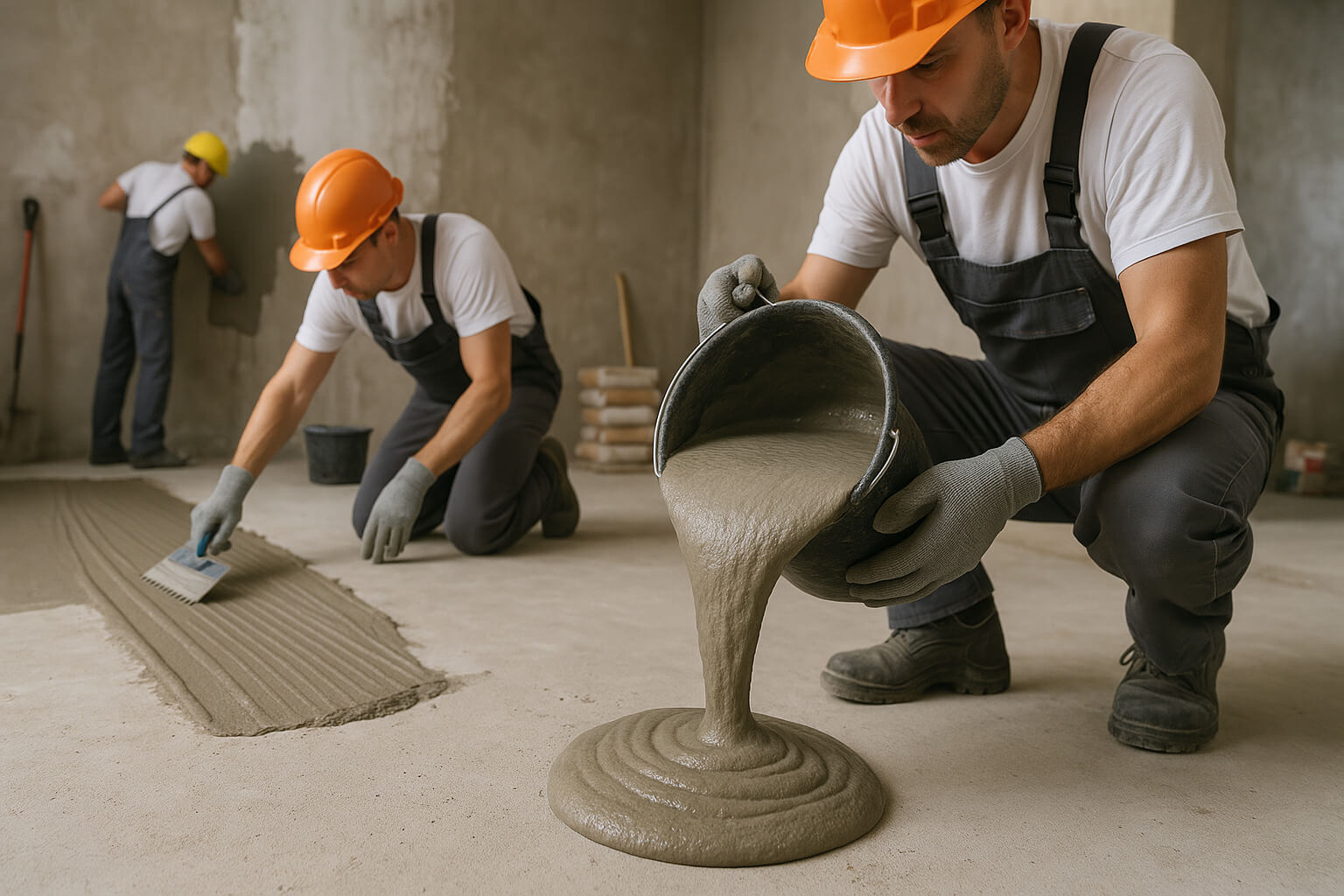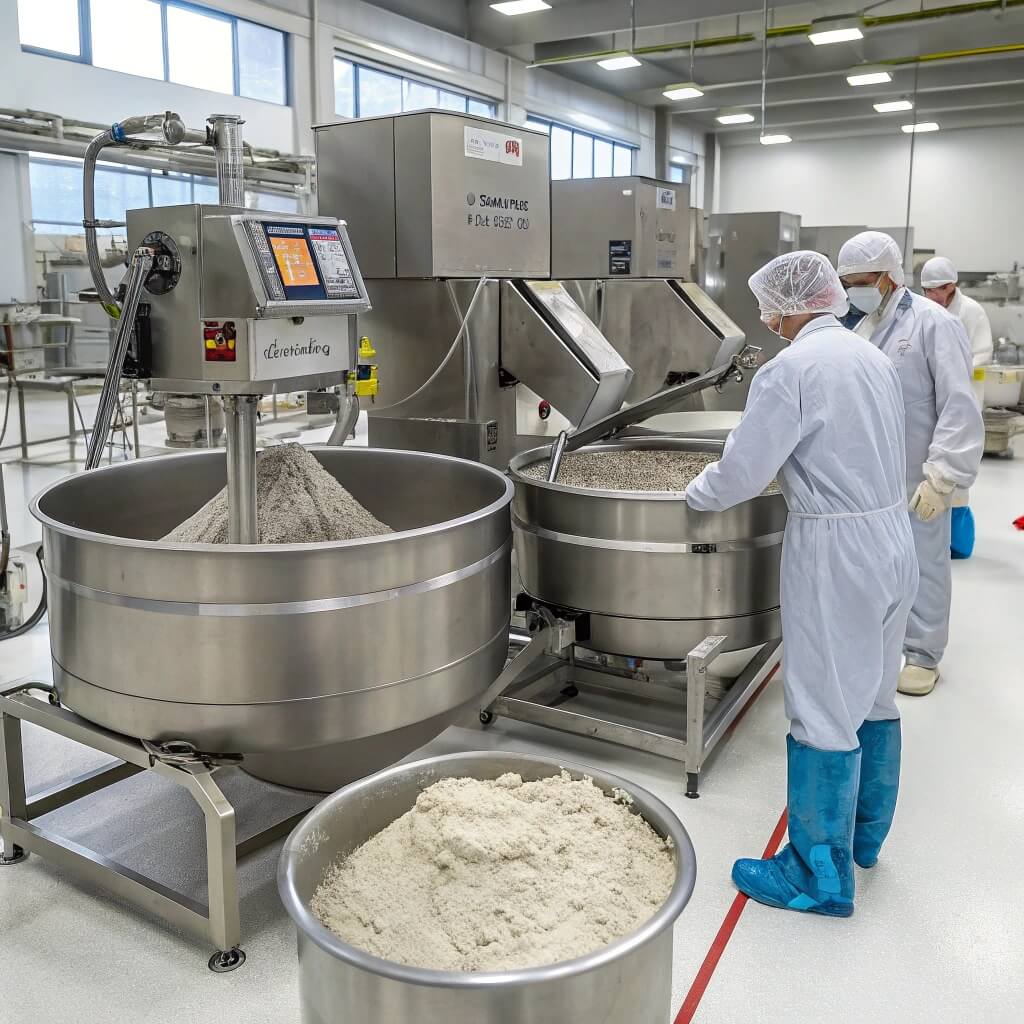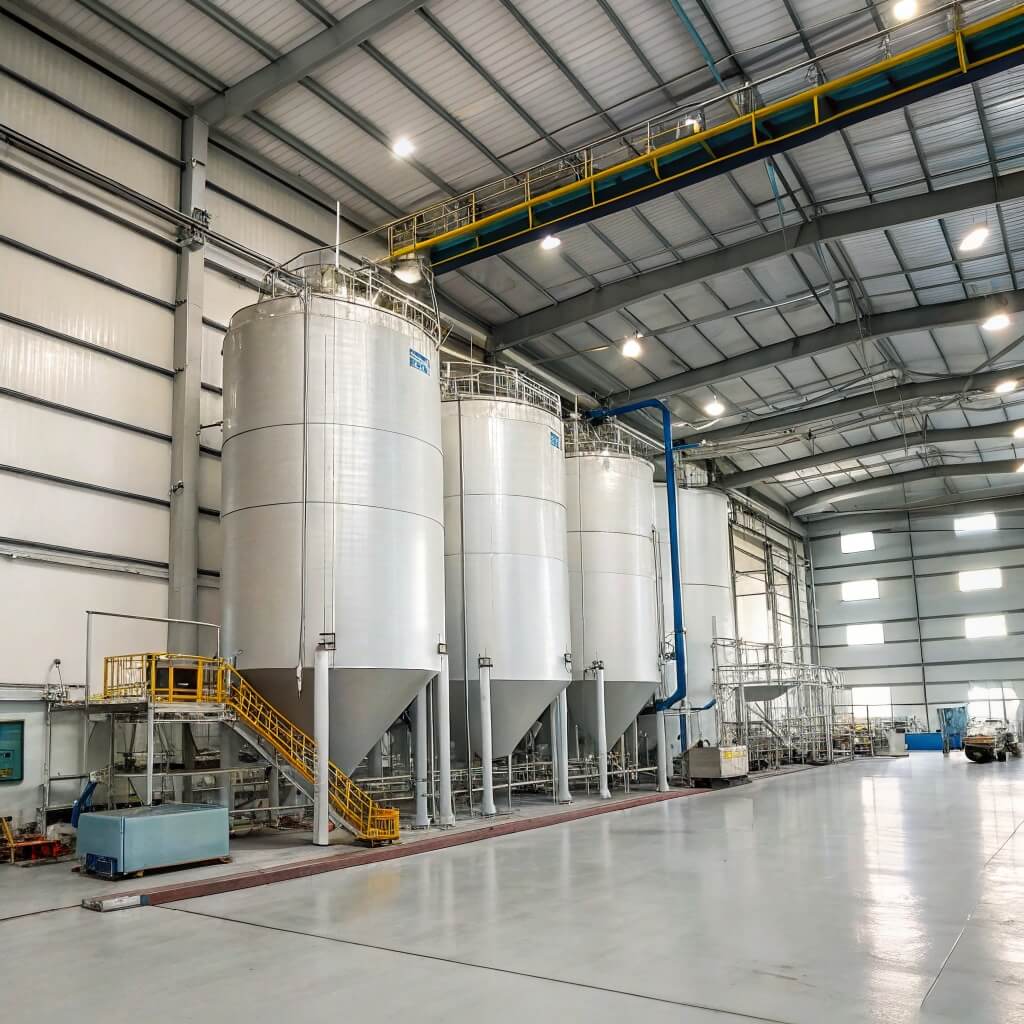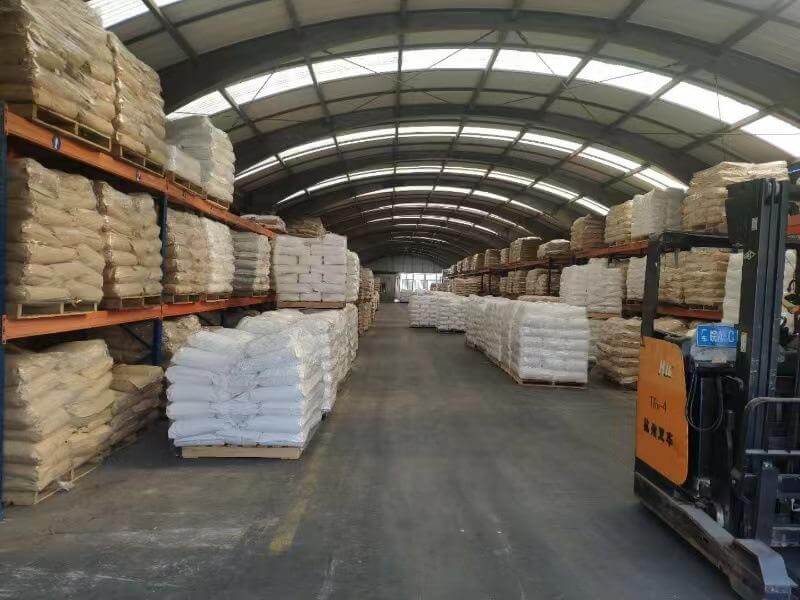Have you ever wondered how the viscosity of Hydroxypropyl Methylcellulose (HPMC) impacts the performance of construction materials? Understanding this can help improve the workability and effectiveness of your products.
HPMC 200000 viscosity is a critical factor in the construction industry, especially for applications involving dry mix mortars, tile adhesives, and gypsum-based products. Its high viscosity improves water retention and workability, ensuring superior performance.

Image showing the usage of HPMC in construction applications, highlighting its role in improving material consistency.
Viscosity plays a significant role in determining the overall quality and ease of application of construction materials. Let’s explore how HPMC 200000 viscosity specifically contributes to these qualities.
Why Does Viscosity Matter So Much in HPMC Performance?
Viscosity directly affects the ease with which HPMC can be incorporated into construction mixtures. Without the right viscosity, materials can become too thick or thin, impairing their workability.
Viscosity in HPMC ensures that dry mix mortars and other construction materials maintain optimal water retention and even consistency. For applications like tile adhesives, this factor is key for easy spreading and extended working time.
Viscosity influences multiple aspects of HPMC’s performance, such as its water retention and the open time of cementitious products. Here’s how it impacts specific functions:
Water Retention
High-viscosity HPMC helps retain water within the mixture, preventing rapid evaporation. This is crucial for ensuring proper hydration of cementitious materials, promoting solid bonding and increased durability.
Workability
Viscosity determines how easily a mixture can be spread. In the construction industry, this feature is essential for ensuring that materials like tile adhesives can be applied smoothly, without excessive effort or uneven coverage.
Setting Time
High viscosity can influence how quickly a mortar or adhesive sets. By controlling the viscosity, manufacturers can achieve a balanced setting time that is neither too fast nor too slow, which is critical for both workability and strength.
As you can see, the right viscosity directly impacts the performance of construction materials. Let’s take a closer look at the specific viscosity measurement of 200000 mPa·s.
Is 200000 mPa·s Considered a High Viscosity for HPMC?
When it comes to viscosity measurement, HPMC 200000 mPa·s is considered high in the construction industry. But what does this mean for practical use in dry mix mortars and adhesives?
A viscosity of 200000 mPa·s ensures that HPMC provides excellent control over water retention and extends open time in cementitious mixtures. For construction applications requiring prolonged workability, this viscosity range offers a significant advantage.
This viscosity level allows for optimal flow and leveling properties in materials such as tile adhesives and gypsum-based products. Here’s why this viscosity range is particularly useful:
Enhanced Processability
The high viscosity of 200000 mPa·s enhances the processability of construction materials, allowing for smooth mixing and easy handling. This leads to better performance during application and improved results after curing.
Improved Bonding Strength
Materials with high viscosity offer superior bonding characteristics. When HPMC 200000 is used in tile adhesives, for example, it ensures strong adhesion to surfaces, which is crucial for long-lasting installations.
Better Hydration Control
In cement-based products, high viscosity improves hydration control. This leads to a more consistent set and curing process, providing better final strength and durability.
With the right viscosity, construction products like tile adhesives and dry mix mortars are more effective and reliable. But how do these properties translate into real-world benefits?
What Are the Main Benefits of HPMC 200000 in Drymix Mortars?
HPMC 200000 viscosity is a game-changer for dry mix mortars, providing a range of benefits that enhance the performance and application of these materials.
The high viscosity of HPMC 200000 makes it especially useful in products such as self-leveling compounds, plasters, and tile adhesives. It improves the consistency and workability of dry mix mortars, making them easier to spread and apply.
Here’s how HPMC 200000 adds value in dry mix mortars:
Improved Water Retention
The water retention properties of HPMC 200000 ensure that mortars stay workable longer, even in hot environments. This allows for a more controlled and efficient application, reducing the chances of cracking or poor adhesion.
Enhanced Bonding
In dry mix mortars, strong bonding is key to long-lasting results. HPMC 200000 helps create a stronger bond between the mortar and the substrate, making it ideal for applications such as tile setting and wall plastering.
Consistent Performance
The consistency of high-viscosity HPMC ensures that each batch of mortar performs the same way, reducing variability and ensuring reliable results across projects.
These advantages make HPMC 200000 a critical ingredient in ensuring high-quality construction materials. But does viscosity also play a role in setting time and hydration?
How Does HPMC Viscosity Affect Water Retention and Setting Time?
Viscosity plays a pivotal role in controlling both the water retention and setting time of cementitious materials. This is essential for ensuring that construction materials perform optimally throughout the curing process.
High-viscosity HPMC, such as the 200000 mPa·s grade, can help prevent premature water loss[^1], extending the time available for proper hydration. This is particularly important in products like mortar, where hydration is crucial for strength development.
[^1]: Understanding the impact of premature water loss can help improve material performance and longevity in construction.
Effect on Water Retention
HPMC’s high viscosity helps bind more water within the mixture, which is crucial for maintaining a workable consistency over a longer period. This prevents materials from drying out too quickly and ensures proper curing.
Impact on Setting Time
Viscosity also influences the rate at which the material sets. The higher the viscosity, the more control manufacturers have over the setting time, which can be adjusted for optimal workability and performance in specific environments.
By controlling the viscosity of HPMC, manufacturers can adjust both water retention and setting times, ensuring optimal performance in a variety of applications.
Which Industries Commonly Use High Viscosity HPMC and Why?
HPMC 200000 viscosity is commonly used across several industries, particularly those involved in construction and building materials. The high viscosity offers unique benefits that make it an ideal choice for various formulations.
Construction Industry
In the construction industry, HPMC 200000 is widely used in dry mix mortars, tile adhesives, and other cementitious products. Its high viscosity improves workability, water retention, and bond strength, making it essential for durable construction.
Pharmaceutical Industry
In pharmaceuticals, HPMC is used as a binder in tablet formulations, and its high viscosity helps control the release rate of active ingredients. This ensures more consistent performance in drug delivery systems.
Food Industry
HPMC is also used in food products like gluten-free bread and beverages. The high viscosity helps improve texture and consistency, which is crucial for certain food applications.
As you can see, the versatility of HPMC 200000 extends far beyond construction. Its ability to enhance water retention and improve workability makes it invaluable across industries.
FAQ
What is HPMC used for in construction?
HPMC is used in construction for improving the workability, water retention, and bond strength of materials like dry mix mortars and tile adhesives. It ensures optimal performance and durability in cement-based products.
What are the applications of HPMC?
HPMC has a wide range of applications across various industries. In construction, it is used in dry mix mortars, tile adhesives, and gypsum-based products. It also serves as a binder in pharmaceuticals and helps improve texture in certain food products.
What is the viscosity of HPMC?
The viscosity of HPMC can vary depending on its grade. For example, HPMC 200000 has a viscosity of 200,000 mPa·s, making it highly viscous. This high viscosity helps improve water retention, workability, and bonding in construction materials.
What is HPMC for Drymix mortar?
HPMC is used in dry mix mortars to improve their workability and water retention. The addition of HPMC ensures that the mortar remains workable for a longer period, preventing premature drying and ensuring proper hydration and bonding.
Conclusion
HPMC 200000 viscosity plays a critical role in improving the performance of construction materials by enhancing workability, water retention, and bonding strength. Understanding its importance can help optimize product formulations and ensure long-lasting results.




